What’s new in Domino Spring 25: Governance that works the way teams work
Domino2025-06-18 | 5 min read
AI governance is a priority for most enterprises. It’s also a common source of friction. According to Domino Data Lab’s latest REVelate survey, two-thirds of data leaders said they were working on AI/ML governance. Most also said they weren’t moving fast enough.
In many organizations, governance lives in documents and spreadsheets — filled with good intentions but disconnected from the models they’re meant to govern. Approvals happen over email. Audit trails get assembled after the fact. Trust is assumed, not enforced.
Domino launched Domino Governance last fall to fix that. We started by integrating documentation, model versioning, policies, and approvals into the model development workflow. It gave teams a way to govern without stepping outside their tools. With Spring 25, we’re extending that foundation. Reviews are tracked. Policies are reusable. Deployments are gated. Governance lives inside the work — not on top of it.
Run shared checks before every model approval
Most teams write their own validation scripts. Bias, fairness, PII — they all get evaluated differently, depending on the project. Now, governance teams can define shared validation scripts and apply them consistently across model bundles. Domino automatically runs these checks every time a model is packaged for approval.
There’s no waiting. No need to remember which checks apply. Results are saved and versioned.
- Centralizes logic for fairness, privacy, and performance reviews
- Reduces rework and human error
- Builds audit evidence as a natural output of the workflow
Governance happens early, often, and automatically.
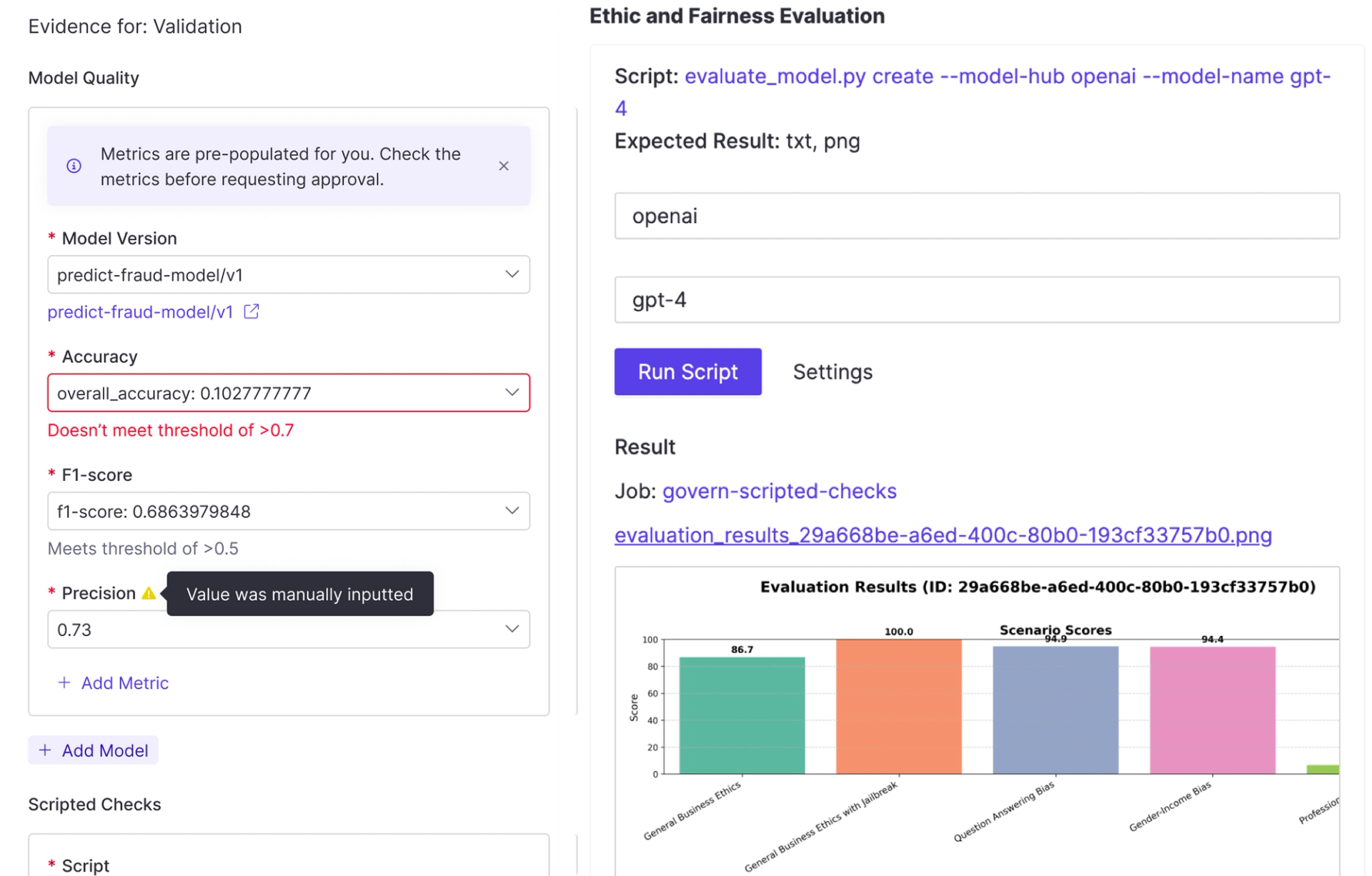
Log risk findings and conditional approvals directly in the platform
Risk reviews are often handled in separate tools. Comments live in Slack. Action items are in Jira. Approvals are saved in Word or buried in email threads. With Spring 25, reviewers can log issues, assign owners, and approve models with conditions — all from within Domino. Approvals stay tied to the model, and follow-up is tracked in one place.
- Gives risk owners a clear handoff and deadline
- Keeps governance from slowing releases
- Builds a complete review history, automatically
Nothing falls through the cracks. Nothing goes live without accountability.
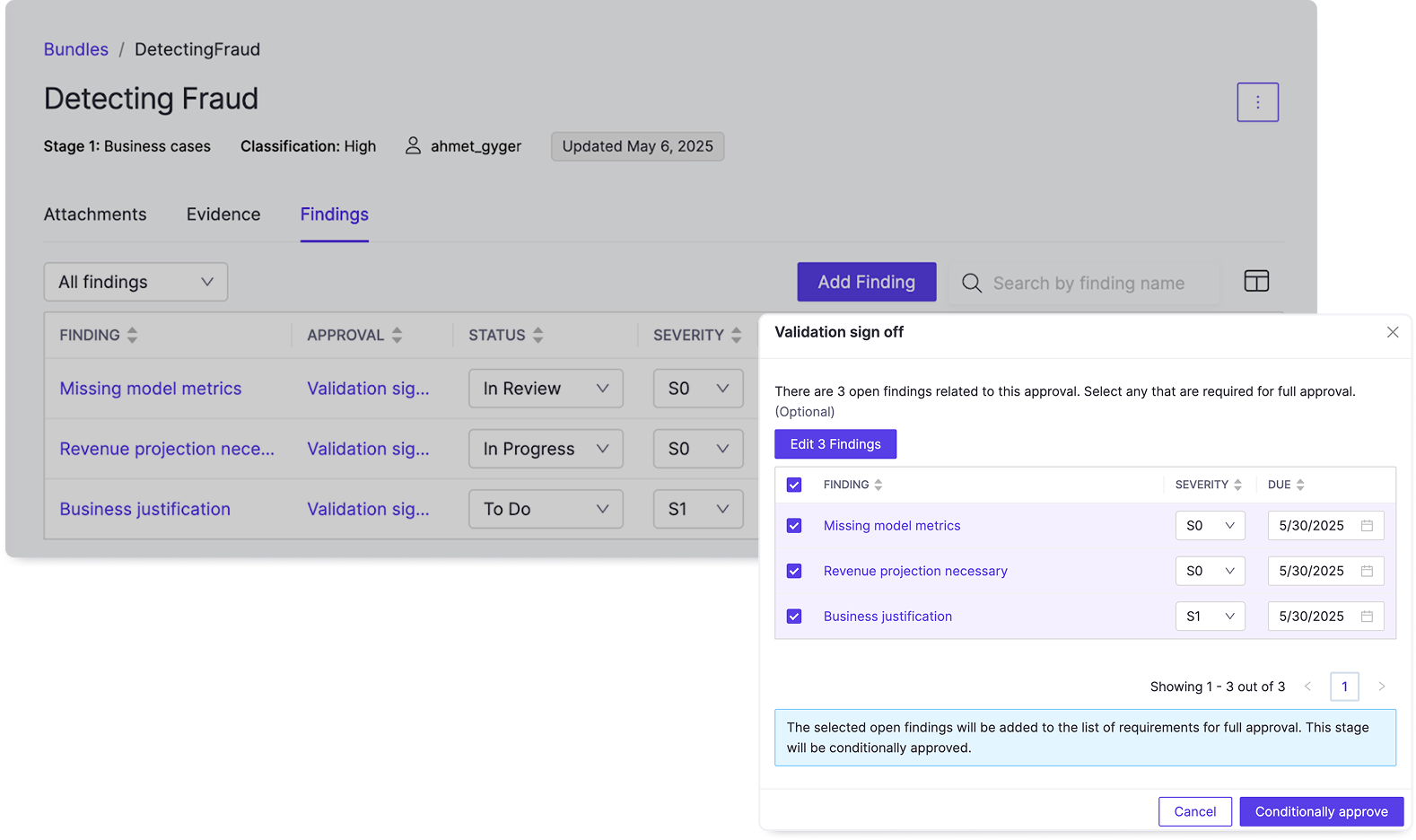
Build and manage policies without writing code
In most companies, policy is written by business or risk teams — but enforced by engineers. That handoff adds friction and often delays enforcement. Spring 25 introduces a visual policy builder. Risk, compliance, and technical teams can create rules together using a shared interface. No scripting required.
- Speeds up policy rollout and iteration
- Makes policy logic reusable across projects
- Keeps rules in sync with the people who own the risk
When policy is part of the platform, governance adapts as fast as your team does.
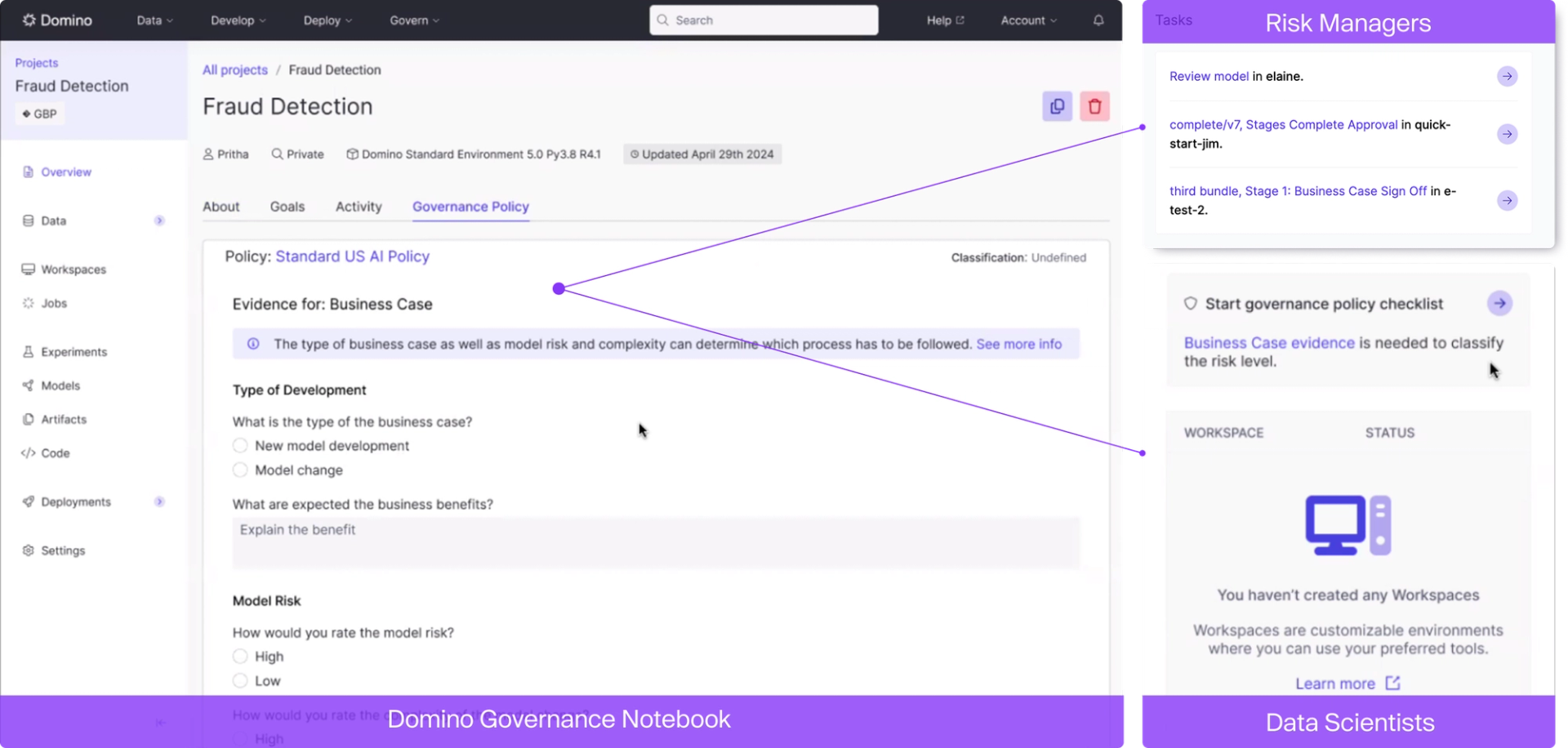
Gate deployments with enforceable approvals
Too often, models and apps go live before governance reviews are done. That creates risk, especially in regulated or high-impact environments. Domino now supports Gated Deployments for deployments. You can block a model or app from reaching production until required policies are satisfied.
- Prevents deployment of non-compliant models
- Captures who approved what, and when
- Removes manual enforcement and last-minute reviews
If it’s not approved, it doesn’t ship. It’s that simple.
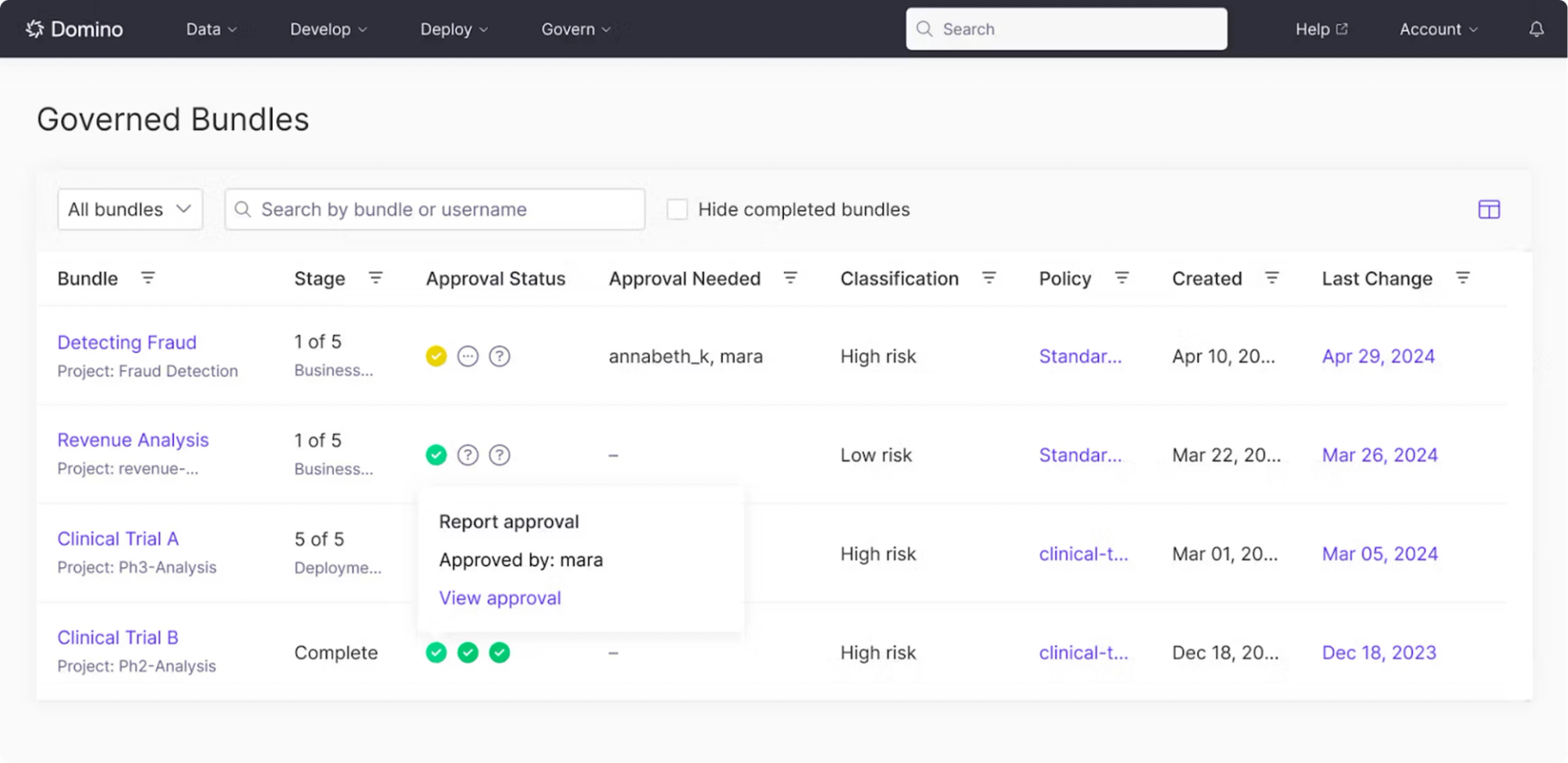
Bring external models under governance
Most teams don’t build every model in the same platform. But that doesn’t mean governance should stop at the tool boundary. Now, teams can import models built outside Domino into the model registry. From there, they can apply the same policies, approvals, and tracking as any other model.
- Unifies visibility across internal and external models
- Simplifies audit reporting
- Reduces gaps in risk coverage
Different origins, same controls. No extra process required.
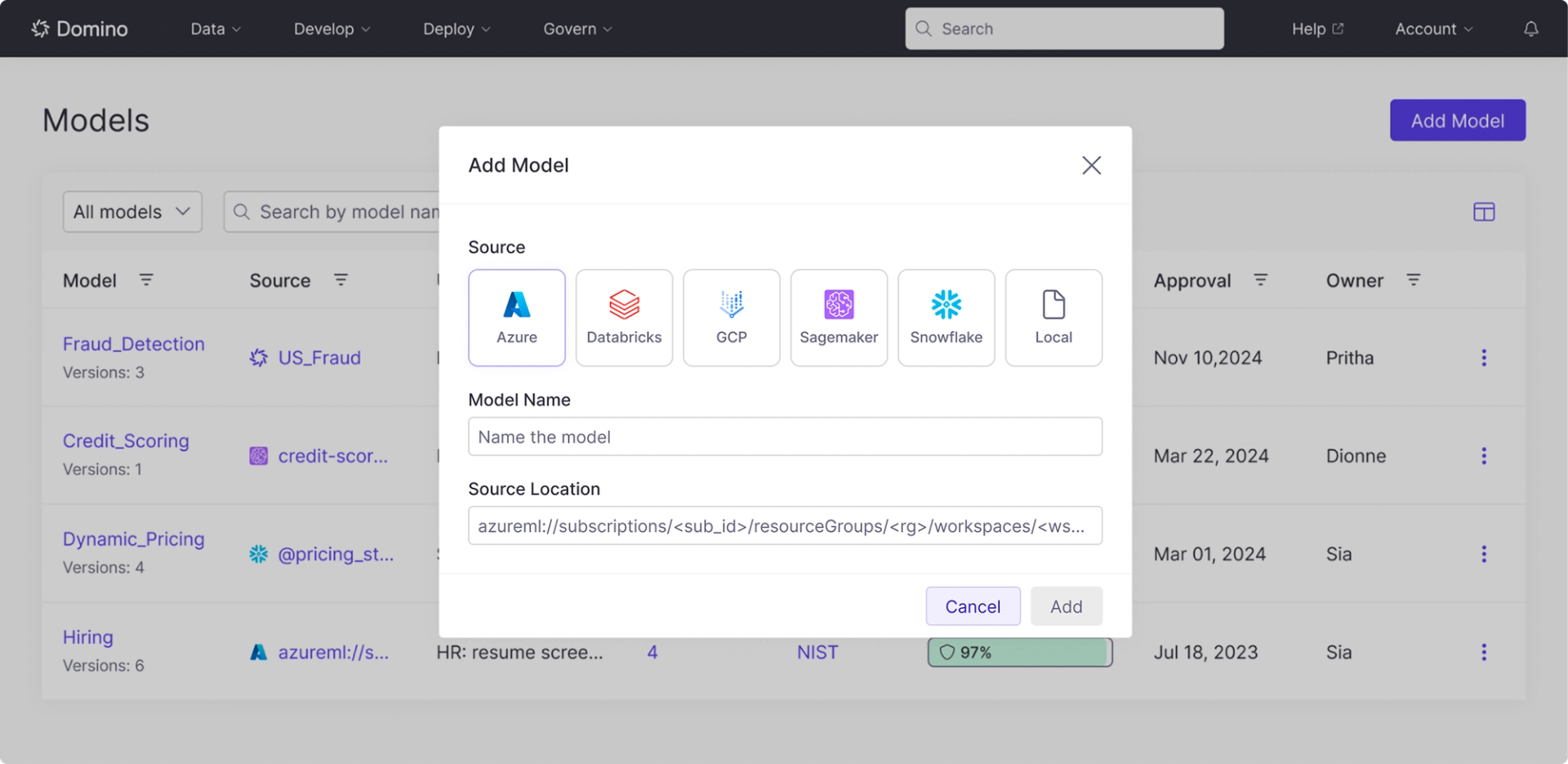
A better way to scale AI responsibly
Most teams want better governance. But they don’t want more meetings, more documents, or more manual tracking. With the new capabilities brought by Domino Spring 25, Domino Governance further embeds policy definition, enforcement, visibility, collaboration, and evidence collection directly into the workflow. Reviews are part of the process. Policies are reusable. Audit evidence is built in. It’s faster to approve, easier to track, and consistent across teams.
Domino is the only platform that brings policies, model registry, and documentation together in one system. That combination makes it possible to govern AI at scale — without slowing down the people doing the work. Governance isn’t just about compliance. It’s how you scale with clarity and trust. Now you can.
Check out Domino’s what’s new page or the latest press release to learn more.
Domino Data Lab empowers the largest AI-driven enterprises to build and operate AI at scale. Domino’s Enterprise AI Platform provides an integrated experience encompassing model development, MLOps, collaboration, and governance. With Domino, global enterprises can develop better medicines, grow more productive crops, develop more competitive products, and more. Founded in 2013, Domino is backed by Sequoia Capital, Coatue Management, NVIDIA, Snowflake, and other leading investors.



